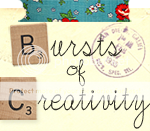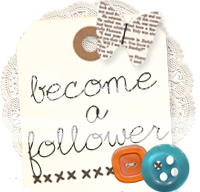I recently had a friend ask me for advice on creating a scrapbook for a special present. She has never scrapbooked before. My gut reaction is NO NO don’t do it – run away run away! LOL only kidding. I know the present will be special and personal and the memories will be preserved and readily available to be cherished and reminisced over. Having worked at a scrapbook store and given several personal lessons for ladies creating scrapbooks for weddings or birthdays I know this can be an overwhelming and large task. So this post is for you. And if you are a regular reader of this blog you probably already scrapbook – this post will be BASIC – but bookmark this page – next time you have a friend approach you for help creating a scrapbook send them here! Hopefully it will come in handy!
Note: I intended to put all this info in one post – however after writing the supply section I realized this is more of a several posts topic – therefore this will be a week long series – check back tomorrow for part two!
The basics – supplies you will need:
A paper trimmer – trust me on this – scissors won’t be good enough – a good paper trimmer will save you valuable time and stress and your paper and photos will always be straight! If this is a one time project a $20 trimmer (which is the low end) will work just fine (and a Michaels coupon can cut that price in half!). I always recommend Fiskars brand – they are great quality and have a life time guarantee. And I used my $20 trimmer for the first 10 years of scrapbooking before upgrading so it will be worth it! Important note: your trimmer has an arm on it – it’s usually tucked underneath the left side (if the blade is on your right). Pull the arm out and you will be able to measure out to 12”. You would be surprised at how many people use their trimmer for months (maybe years?) without ever knowing it had an arm – the arm is your friend – use the arm!
Adhesive – this is glue – you need glue! You are going to want your adhesive to be acid free. This means that over time your photos won’t discolor from the acid in the adhesive. Remember those old photo albums that had the plastic film that peeled up and you stuck your photos on the sticky background? Now remember when you pulled that same album out 30 years later and your photos had turned yellow? That was from the acid in the adhesive/paper in the album. We want to avoid that – buy acid free. Now there are HUNDREDS of different types of adhesive – tape runners, adhesive squares, glue dots, glue pens, glue sticks (and then lots of different brands within each category). Here is what I recommend:
Tape Runner – it works like a white out runner with the tape coming out as your glide the runner over the page – these are easy to use but you have a tendency to get “tape happy” and use them fast. If you are using a tape runner try just using a little bit of tape in the corners of your photo. They come in disposable and refillable. You are going to want either a tape runner or photo squares.
Photo Squares – these are usually in a small box. The squares are on a strip and you pull them off one by one and place them in the corners of your photo. These are cheaper and beginner scrapbookers usually gravitate to them for this reason. If you are trying to save a little money this could be the way to go – though because you are pulling them off one by one you will be sacrificing time.
Glue Stick – I recommend the UHU stick. In my opinion it is stronger and stays down better. Glue sticks are not necessary in scrapbooking but may be a good alternative to a tape runner for gluing down paper. I do not recommend using a glue stick on photos because it may warp the photo – a tape runner or photo squares will get you a flatter photo.
That’s all you really need – a tape runner (or photo squares) and a glue stick. Don’t be intimidated by the adhesive section just pick one and go. Important note – I do NOT recommend mod podge for scrapbooking. It’s messy and unless you are using the mod podge specifically made for paper (check the label) it is NOT acid free! Save the mod podge for your other projects!
Journaling Pen: you are going to want a good quality acid free journaling pen. They come in lots of colors – I recommend the Zig Millennium brand pen (I find I only use black and white journaling pens – zig is not offered in white – for white I use a Signo Gel pen) Your standard office pen and sharpies are not acid free – invest in a good quality scrapbook pen!
Scrapbook Album: You are going to have to choose a size – standard scrapbooks are 12x12. Most scrapbook paper is sold in 12x12. Other options are 8 ½ x 11, 8x8. 5x7, or 6x6. Think about how many photos you have – have tons? 12x12 is probably your best bet – you can get multiple photos per page easily. Only have a few pictures? A smaller book may be the way to go – think about it this way 8x8 or 6x6 or only going to hold one 4x6 photo per page. Do you need more room than that? Most scrapbooks come with 10-20 protectors (which holds 20-40 pages doublesided). Most scrapbooks are expandable and refill pages can be purchased. For albums I use WeRMemory Keeper brand albums – I think they are the best quality out there (they are pricey and are not available at Michaels/Walmart/Target). If you are limited in where you can purchase an album I recommend Pioneer brand – you will have the best luck finding refill pages and they are a decent brand. But with that said if you find something you like purchase it! Refill pages are brand specific – manufacturers will make their holes slightly off or the margin slightly longer so that you cannot mix and match brands. So if you buy an album make sure you remember the brand so you can find refills later. I do not recommend purchasing an album that is larger than 12x12 (there are a few out there). You will not be able to find paper to fit this size and trust me it will be frustrating!
Now there are a few different types of albums- ring bound, post bound, and strap hinge. Ring bound are 3 ring binder style albums. Pages can be moved around easily. Post bound are held together with screw posts. Refill packages come with post extenders that screw in to make your book larger. A lot of people prefer post bound because it has a professional look to it – when you open the album the pages are sitting closely next to each other (versus ring where there is a large gap). Strap hinge are difficult to find and are the version manufactured by Creative Memories (which is how a lot of us got into scrapbooking) I don’t recommend strap hinge because it will be difficult to find refills for. I personally use ring bound but post are good as well.
Scrapbook Paper: you are going to need paper! Scrapbook paper is broken down into 2 main categories – cardstock and patterned paper. Cardstock is typically a single color paper (white, black, purple etc) and is usually thick. Patterned paper is just that – paper with patterns – it can be single sided or double sided. What you will need will depend on the page layouts you intend to make – we will talk more about this later. Sometimes you will purchase an album that already has paper in the protective sleeves – I usually pull that paper out and replace it – I’m not a fan of the quality of the paper.
Optional Supplies: these are supplies you may want but don’t have to have:
Fine Tip Scissors – a good pair of scissors will come in handy – so you will probably want to invest in a pair. But I will be teaching you how to create an album that you won’t **have** to have them therefore they are on the optional supply list. I recommend Fiskars brand scissors – fine tip are the best for detailed cutting.
Embellishments: stickers, alphabets, die cuts – there are embellishments for every season, holiday, and occasion. These are optional and we will talk about using embellishments later.
Note: I wrote this entirely on my own and as a result it is filled with my opinions. Opinions I based on 15 years of scrapbook experience and 2 years of working in a scrapbook store and teaching. With that said I am sure there are a lot of people who would disagree or have other favorite brands - take it as an opinion - use it if it is helpful and don't if it's not.



































